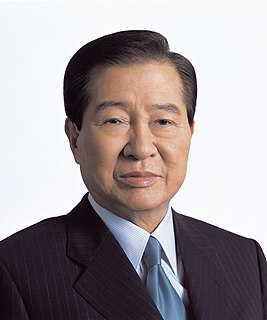A Quote by Michael Ruppert
Since the advent of the atomic bomb, the United States has always needed two kinds of enemies. On one level, it has needed a tactical enemy that it can go out and fight in the field in a shooting war. Since 1945, these enemies have been created and appeared as North Korea, North Vietnam, Grenada, El Salvador, Panama, Iraq and now Colombia. On another level, however, the US needs a strategic enemy that will justify outrageous expenditures of capital for strategic weapon systems like ICBMs, Trident submarines and "Star Wars" missile defence systems.
Quote Topics
Advent
Always
Another
Appeared
Atomic
Atomic Bomb
Been
Bomb
Capital
Colombia
Created
Defence
El Salvador
Enemies
Enemy
Expenditures
Field
Fight
Go
Grenada
However
Iraq
Justify
Kinds
Korea
Level
Like
Missile
Needed
Needs
North
North Korea
North Vietnam
Now
Out
Outrageous
Panama
Shooting
Since
Star
Star Wars
States
Strategic
Submarines
Systems
Tactical
Two
United
United States
Us
Vietnam
War
Wars
Weapon
Will
Related Quotes
During the periods when South Korea played a more active role, the inter-Korean relationship was more peaceful, and there was less tension between the United States and North Korea. The last U.S. administration pursued a policy of strategic patience and did not make any effort to improve its relationship with North Korea. Also, the previous Korean government did not make any such efforts. The result is the reality you see today - North Korea continuing to advance its nuclear and missile program.
To say that the United States has pursued diplomacy with North Korea is a little bit misleading. It did under the Clinton administration, though neither side completely lived up to their obligations. Clinton didn't do what was promised, nor did North Korea, but they were making progress. So when Bush came into the presidency, North Korea had enough uranium or plutonium for maybe one or two bombs, but then very limited missile capacity. During the Bush years it's exploded. The reason is, he immediately canceled the diplomacy and he's pretty much blocked it ever since.
Every book that comes out, every article that comes out, talks about how - while it may have been a "mistake" or an "unwise effort" - the United States was defending South Vietnam from North Vietnamese aggression. And they portray those who opposed the war as apologists for North Vietnam. That's standard to say. The purpose is obvious: to obscure the fact that the United States did attack South Vietnam and the major war was fought against South Vietnam.
Most of us who were opposed to the war, especially in the early '60's - the war we were opposed to was the war on South Vietnam which destroyed South Vietnam's rural society. The South was devastated. But now anyone who opposed this atrocity is regarded as having defended North Vietnam. And that's part of the effort to present the war as if it were a war between South Vietnam and North Vietnam with the United States helping the South. Of course it's fabrication. But it's "official truth" now.
The North Korean regime remains one of the world's leading proliferator of missile technology, including transfers to Iran and Syria. The transfer of nuclear weapons or material by North Korea to states or non-state entities would be considered a grave threat to the United States, and we would hold North Korea fully accountable of the consequences of such action.
On both of my major trips to North Korea, the leaders of the country made it plain that they want to make progress towards doing away with nuclear weapons and towards ending the longstanding, official state of war which persists between North Korea and the United States and South Korea, a war which has continued since the ceasefire over fifty years ago. That sort of thing happens quite often when we meet with people who are kind of international outcasts with whom the government of the United States won't meet.
This is a good deal for the United States, north Korea will freeze and then dismantle its nuclear program. South Korea and our other allies will be better protected. The entire world will be safer as we slow the spread of nuclear weapons. The United States and international inspectors will carefully monitor North Korea to make sure it keeps its commitments. ...Only as it does, so will North Korea fully join the community of nations.
At the beginning of this year also, I called upon the North Korean side to open dialog between the responsible authorities of the South and the North at any place, at any time, and at any level, in order to prevent a recurrence of war and to cooperate to speed up the peaceful unification of our fatherland. However, no sincere response has yet been made by North Korea.
Unfortunately, the cyber threat to 'the grid' is only one means of eviscerating the soft underbelly of American society. Another which has been getting increasing attention could be delivered via the kind of nuclear-armed ballistic missile that Iran and North Korea have been developing: a strategic electro-magnetic pulse attack.
































